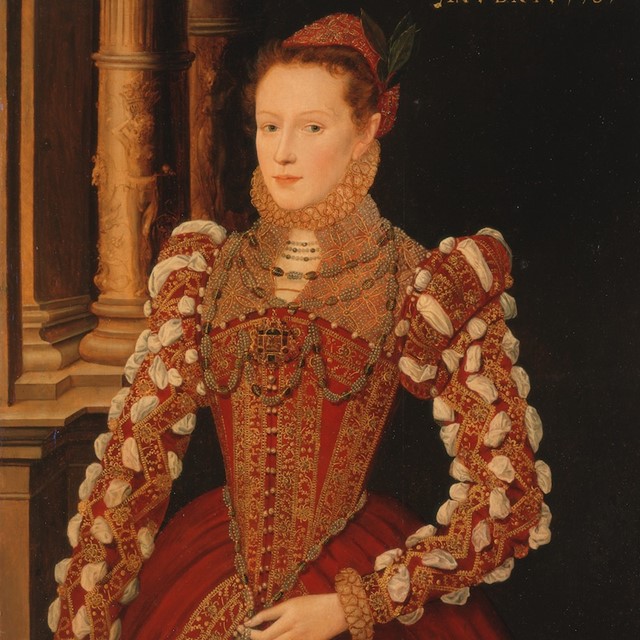
The Buckley School's founder believed all public speakers should hone their presentation skills by reading poetry out loud. We keep that worthwhile practice alive by including a poem in our magazine each month for you to read aloud. Above, Portrait of a Woman, 1567, a painting dated the same year Isabella Whitney's poems were published in "The Copy of a Letter."
Little is known about Isabella Whitney, an English poet who lived from the mid to late 1500s. She is believed to have been the first Englishwoman to write secular poetry for publication, with two anthologies of her work printed.
From autobiographical details in her writing and other clues, literary historians believe she resided in London, was educated and refined but not wealthy, and lived as a rather free-spirited woman who shrugged off the conventions of her day.
In writing about her life, Poetry Foundation says: "How much Whitney benefited from the Renaissance opening of some education to some women is not known, but such strictures make her effervescent poetry all the more remarkable." You can read more about Whitney here.
Below, find one of her poems to read aloud, with lines that will challenge you to work on your phrasing in order to deliver them with the intended meaning. Have fun!
A Sweet Nosegay, or Pleasant Poesy, Containing a Hundred and Ten Philosophical Flowers
by ISABELLA WHITNEY
Those strokes which mates in mirth do give
do seem to be but light,
Although sometime they leave a sign
seems grievous to the sight.
He that is void of any friend,
him company to keep,
Walks in a world of wilderness,
full fraught with dangers deep.
Each lover knoweth what he likes
and what he doth desire,
But seld, or never, doth he know
what thing he should require.
Affection fond deceives the wise
and love makes men such noddies
That to their selves they seem as dead
yet live in other bodies.
Ask nothing of thy neighbour that
thou wouldst not let him have:
Nor say him nay of that which thou
wouldst get if thou didst crave.
Two eyes, two ears, and but one tongue
Dame Nature hath us framed
That we might see and hear much more
than should with tongue be named.
Seek not each man to please, for that
is more than God bids do:
Please thou the best, and neuer care,
what wicked say thereto.






